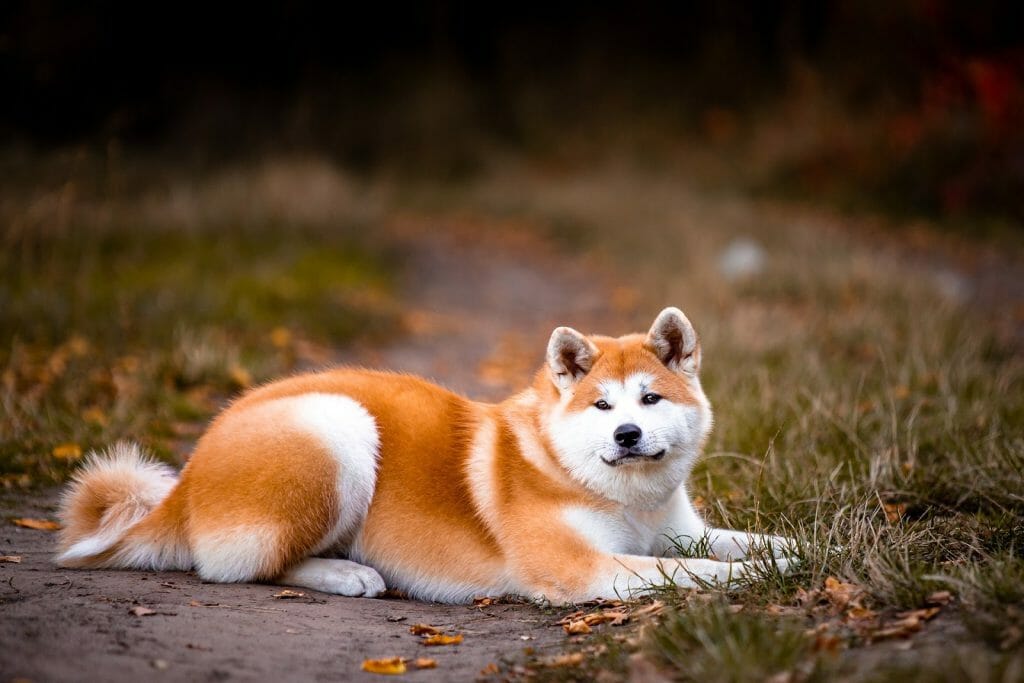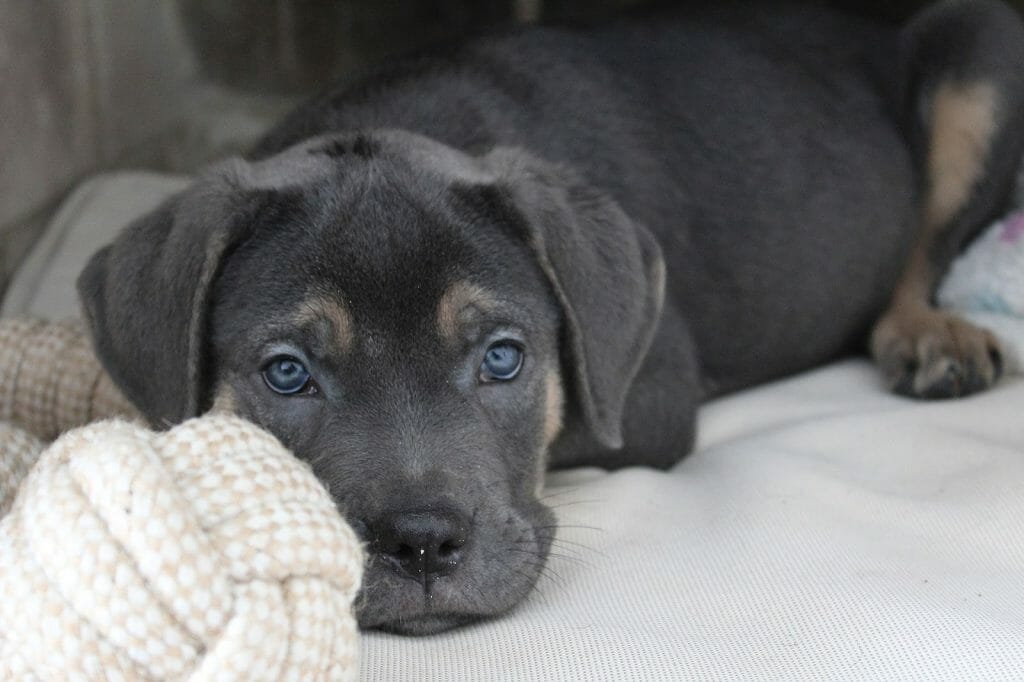Akita vs Cane Corso: Which Dog is a Better Pet?
Actually, both the Akita and the Cane Corso prove to be excellent household pets. Countless owners can attest to that thanks to their even-tempered nature, playful personalities, and caring attitude. It all comes down to how each of them is raised and trained.
Compatibility is another thing. There’s real reasoning behind why some owners do well with a certain breed and worse with another. Take time before bringing an Akita or a Cane Corso home.
What’s a better way to do that than to get to know them? This article has all the things you need to know about both breeds.
Table of Contents
Breed Origins
Akita
The Akita breed’s courage, loyalty, and nobleness are rooted deeply in its place of origin– in the mountains of Northern Japan. Families would revere him as a family protector that brings good health, long life, and happiness. This is a diligent working dog that earned a natural monument from the Japanese government in 1931.
Before, he was mainly used as a hunting dog, but this eventually changed into something more meaningful like becoming a police and guard dog. It was in the year 1937 when the US got its first Akita puppy through Helen Keller. She received it as a present during her Japan tour.
Cane Corso
The peerless protector from Italy is no other than the Cane Corso. He is of noble bearing, a true descendant of the Roman war dogs. When the Roman Empire fell, the Cane Corso’s role as a war dog shifted. He was then seen in the fields, protecting the livestock or at the large properties, keeping intruders at bay.
When industrialization and world wars took place, the breed almost got extinct. Dr. Paolo Breber came to the rescue and started a breeding program for the revival. It was around 2010 when the Cane Corso got its recognition from America’s largest and most well-known kennel club.
Size, Appearance, & Coloring
Akita


A red fawn Akita with his typical patient look as he relaxes on the ground.
We are no strangers concerning what an Akita looks like, especially if you’ve been to Japan several times. This robust breed that reaches 24-28 inches has a powerful appearance and a muscular build which explains why he was suited as a working dog. He can be 70-130 pounds as an adult. The eyes are brown and small and yet described to be alert.
Another feature that adds up to his vigilance is his upright triangular ears. Some would say that an Akita is one of the Dogs That Look Like a Bear and it shows. The back is well-streamlined with a bit of excess skin between his neck and shoulders on top and the body ends in a curled-up bushy tail.
An Akita’s natural colors are white, sesame, brindle, and red fawn.
Cane Corso


A soulful Cane Corso puppy with his natural ears.
True to his task, a Cane Corso is indeed the most qualified to guard homes and estates. He’s got a rectangular body that’s large, powerful, and athletic. Typically, his weight can reach 120 pounds and can get as far as 23.5-27.5 inches in height. The brown eyes are discerning, observant, and unpredictable, especially if the ears are cropped and the tail is docked.
All possible colors found in the Cane Corso breed are black, fawn, gray, chestnut brindle, gray brindle, black brindle, and red.
Temperament
Akita
No matter how gentle an Akita is, the last thing you would want to do is to leave him with smaller animals like cats, rabbits, or squirrels. This alert dog has a high predatory instinct due to his hunting history as a breed.
While it’s not impossible for him to develop a bond with anyone, you, as an owner, have to teach your kids how to behave around this canine. Never let them tease him involving his food and make sure he gets to have his time in finishing up his meal.
As expected, the Akita will show wariness toward strangers, so proper introduction is of utmost importance should you bring guests at home. He’s not prone to barking, thank goodness, but surprisingly, an Akita will act very vocal toward his owners.
Cane Corso
To make the best out of this wonderful breed, the Cane Corso needs to be trained right from puppyhood. It’s not hard work as he’s responsive and intelligent enough to absorb the lessons. Once he knows how to properly behave, he can react to certain situations without having to wait for his owner’s commands.
Undeniably, this massive Mastiff is confident about his actions. He remains dignified in whatever he does, making him earn everyone’s respect. He needs one firm master as he tends to push boundaries and fight for dominance. Be sure you’re experienced enough to handle him.
Exercise Needs
Akita
Exercise is a key part of any dog’s life. In the case of the Akita breed, his medium levels of energy would require you to provide him with at least 2 hours of active sessions. This can be spent by either letting him run around an enclosed area or being walked on a harness around the park. Do this in divided sessions in the morning and afternoon.
Cane Corso
Despite the size and heaviness, the Cane Corso is surprisingly high on endurance and activity level. It’s suggested that he’s brought out for games and drills for two hours each day, divided into smaller sessions. Be mindful of the weather as he’s prone to overheating. On top of this, make sure that wherever he’s at, the place is fenced and secure.
Grooming Requirements
Akita
Like a cat, the Akita likes to stay clean, but a weekly brush would benefit him a lot. Use a soft brush for his delicate coat. There’s no need to give him a bath unless he’s covered in mud or emitting a certain dog odor. Pay special attention to other hygiene routines that involve the eyes, teeth, ears, and anal glands.
Cane Corso
The short coat of the Cane Corso requires little grooming. He can be brushed monthly or whenever you deem it necessary. Be sure to use a soft bristle brush only. The same applies to his baths. Ensure that the products you use for him are all canine-appropriate. Other hygiene steps have to be included like nail trimming and ear and teeth cleaning.
Health Problems
Akita
Some of the health issues your Akita is most likely to encounter can be treated by your local vet, while some others may need surgery or maintenance. Be prepared in all aspects should your Akita experience the following medical problems:
- Progressive Retinal Atrophy
- Hip dysplasia
- Hypothyroidism
- Von Willebrand disease
Cane Corso
There are a few health concerns found in the Cane Corso breed, so be vigilant once certain symptoms kick in. Some are curable while others need lifelong maintenance and care. Set an appointment with the vet as soon as you suspect that your dog has the following:
- Gastric torsion
- Hip dysplasia
- Epilepsy
- entropion/ectropion
Breed Popularity
The American Kennel Club (AKC) has sorted out the popularity ranking of the following breeds:
Akita: 47th
Cane Corso: 32nd
